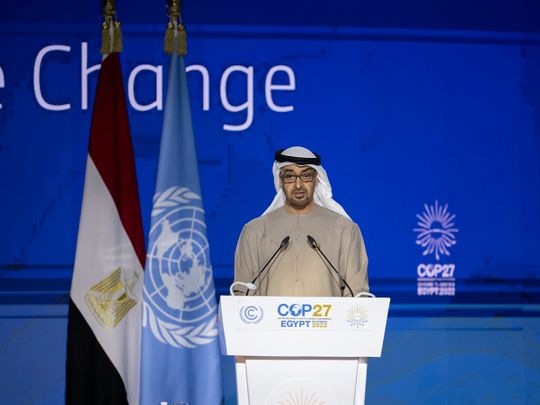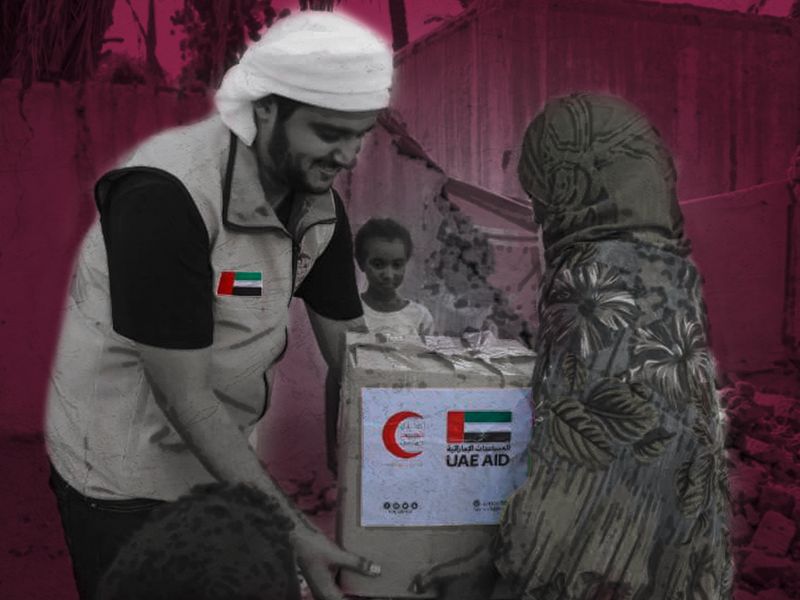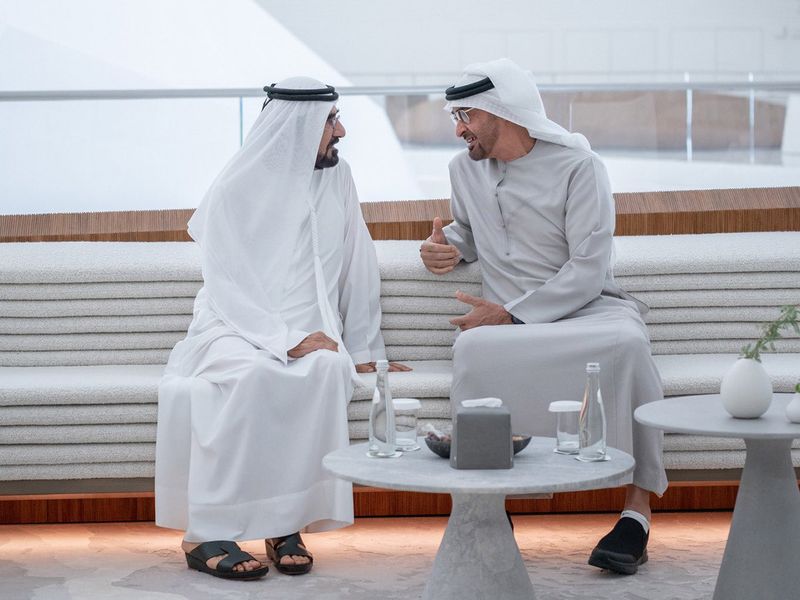
The UAE is a country that has a deeply ingrained tradition of helping others. This dates back to the nation’s founding father, the late Sheikh Zayed bin Sultan Al Nahyan, and has become a sustainable approach, under the patronage and directives of President His Highness Sheikh Mohamed bin Zayed Al Nahyan.
The UAE’s humanitarian efforts serve as a global role model, with a proven track record of success and a wealth of experience in responding to natural disasters, crises, and emergencies. These efforts are motivated by three key factors: protecting vulnerable populations, collaborating with local and international organisations, and enhancing the global humanitarian system.
The UAE has a deep-rooted tradition of established infrastructure for humanitarian endeavours. The country’s commitment to such efforts is evident in the ninth principle outlined in the “Ten Principles for the Next Fifty Years of the UAE” document released on Sep. 5, 2021, highlighting the sustainability of this cultural trait.
Moreover, the UAE’s institutional efforts are purposeful and equipped with exceptional resources to effectively respond to rescue, relief, and caregiving needs.
This includes supporting victims of recent floods and storms in Sudan and Pakistan and other disasters. In addition, the UAE’s humanitarian and assistance activities in the recent earthquake crisis in Turkey and Syria benefited from its experiences in the 1990-1995 Pakistan floods, the 1982 Dhamar earthquake in Yemen, the 2004 Sumatra earthquake, and the 2010 Chile earthquake.
The country’s response to the earthquake disaster in Syria and Turkey is the latest example of its humanitarian work.

Vision of the leadership
Sheikh Mohamed bin Zayed Al Nahyan provided $100 million for the relief of the affected in Syria and Turkey, and dispatched an envoy, Sheikh Abdullah bin Zayed Al Nahyan, Minister of Foreign Affairs and International Cooperation, on an urgent visit to Syria and Turkey following the earthquake.
Sheikh Hamdan bin Zayed Al Nahyan, Ruler’s Representative in Al-Dhafra Region and Chairman of the Emirates Red Crescent, allocated Dh20 million to fund Ramadan initiatives in Syria this year.
The UAE Ministry of Defence took part in the rescue operations of the “Gallant Knight 2” operation, which amazed the world with its speed and efficacy. The team conducted rescue operations in the worst-hit areas of Turkey’s Kahramanmaraş province, near the earthquake epicentre, and were lauded for their efforts by authorities in both countries.
The initiative of the ‘Bridges of Good’ donation campaign launched by the UAE Red Crescent succeeded in collecting donations of hundreds of millions of dirhams, donated by associations, institutions, citizens, and residents.
A total of 106 flights, 65 to Syria and 41 to Turkey, transported 3,014 tons of food, medical supplies, and shelter tents. In addition, a field hospital was set up in the Turkish city of Gaziantep on an area of 40,000 square meters, with 50 beds and four intensive care beds, and was equipped to perform major surgeries.
More than 174 critically injured have already received treatment there, and another field hospital was established in the Reyhanli area of the Turkish city of Hatay. The second hospital was equipped at the highest level, and bears the name “Mohamed bin Zayed”, and those two hospitals were established within the operation “The Gallant Knight 2”.
UAE’s generous spirit
The International Humanitarian City in Dubai led the way in quick response and effective contributions to crises and disasters by coordinating with its partners and quickly operating 11 flights carrying nearly 200 tons of emergency aid to shelter and relief earthquake victims, benefiting about 730,000 in Syria alone.
The city funded three of the eleven flights through the Global Humanitarian Impact Fund. It also aided the arrival of the other eight flights. All this was made possible by Dubai International Humanitarian City thanks to the wise leadership of Mohamed bin Zayed and under the directives of His Highness Sheikh Mohammed bin Rashid Al Maktoum, Vice-President and Prime Minister of the UAE and Ruler of Dubai.

Furthermore, the UAE has a lengthy and proven record of achievements in humanitarian work, having donated billions to developing countries and low-income communities from 2010 to 2021. Of this amount, roughly 90% went to countries in Africa and Asia. The total humanitarian and relief assistance provided by the global initiatives of Sheikh Mohammed bin Rashid Al Maktoum, Vice President, Prime Minister of the United Arab Emirates, was Dh206 billion.
With 1.31 per cent of its total income, the UAE is the world’s largest donor of foreign aid relative to its national income, benefiting 34.8 million people. This is double the global required rate set by the United Nations at 0.7 per cent. In 2015, the UAE doubled the amount it allocated to humanitarian work.
Importance of planning
The significance of planning ahead of time is becoming increasingly clear in view of the possible threats of climate change, from which no country in the world is immune.
Therefore the government must carry out emergency and evacuation operations, as well as conduct the necessary follow-up and evaluation of the event and situation, which includes counting losses, rehabilitating those affected, rebuilding and evaluating procedures to identify lessons learnt, documenting the event, and developing recommendations and proposals to prevent its recurrence or to deal with similar disasters more effectively.
The UAE possesses all those capabilities thanks to the wise leadership of Mohamed bin Zayed and his brothers, Their Highnesses Members of the Supreme Council of the Union and Rulers of the Emirates.
The president has placed a high priority on ensuring that the UAE has the necessary personnel, infrastructure, and expertise to deal with emergencies and catastrophes
Focus on climate
The recent terrible earthquakes in Turkey and Syria validate the foresight and vision of Mohamed bin Zayed Al Nahyan. His Highness called on all nations to jointly adhere to climate accords, notably the Paris Agreement and launched a strategic commitment to attain climate neutrality by 2050 and an Emirati-US cooperation to spend $100 billion in clean and renewable energy projects.
In the same context, Mohamed bin Zayed, said: “Climate change is a major threat to global peace and security, and our meeting comes at a time when these issues must be addressed urgently. With just one planet to work with, it is critical that we work together to address this issue through climate action, which we view as a chance to be more creative, develop new ways to solve problems, and diversify our economy.”
— Prof. Jamal Sanad Al Suwaidi is a noted Emirati writer


